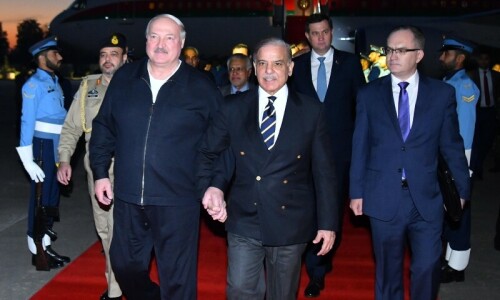PERHAPS this is a trip down ego lane, if there is such a lane, and whilst taking a bow once in a while might not be a bad thing, the more honourable, albeit admittedly rather mundane, intent today is to once again make an attempt to disavow the basically irrelevant U-turn debate.
When the U-turn option was discussed on these pages a little over a month ago by this writer, the objective was to spotlight the uselessness of the debate on the grounds that U-turns were part and parcel of any decision-making process and the oppositions focus thereon was deflecting debate from the real issues at hand.
The fact that the arguments used to explain the necessity of a U-turn have ended up as a defence for the protagonists is rather amusing; the fact that the U-turn remains a contentious issue for the opposition on the other hand is quite distressing. Essentially, the number of U-turns one takes does not matter as long as you get to your destination; contrarily, if you do not get where you wanted to be, perhaps you should have taken a U-turn.
On a lighter note, if the media team of the ruling party had spent more time on Google search they might have come across Godwin’s law and perhaps might have refrained from invoking the Hitler defence. Mike Godwin, an American attorney and author, in 1990 came up with the law or a rule, an observation even, that as online discussions continue, the probability of someone invoking a comparison with the Nazis or Hitler increases; in some forums those who do use the Hitler argument are deemed to have lost the plot, or argument.
If you do not get where you wanted to be, you should have taken a U-turn.
On the other hand, perhaps the usage of Hitler and Napoleon was deliberate and the opposition camp fell for it hook, line and sinker. It was absolutely hilarious to witness some anchors salivating gleefully on the idiot box after having been offered another opportunity for maligning the hapless U-turn. It would not be gentleman-like to comment further on media superstars, albeit one can’t resist pointing out that blinded by their passion and prejudices many of them end up marginalising their claim of being independent journalists.
A summation of the key issues discussed on media talk shows on prime time over the previous three months boggles the mind; which part of the world do we live in that we have time for such drivel?
If Pakistan was not plagued by real issues then perhaps discussing U-turns, car auctions, helicopter-fuel consumption, to IMF or no IMF, and what not might be an entertaining pastime; today many such debates verge on ignorance if they cannot be deemed entirely conspiratorial.
The opponents of democracy in such circumstances face a curious dilemma. While democracy getting exposed again and again is a welcome outcome of the U-turn saga for them, in the balance it is an unacceptable cost; a Pyrrhic victory!
The World Bank very recently issued a report titled, When Water Becomes a Hazard: The State of Water Supply, Sanitation and Poverty in Pakistan and its Impact on Child Stunting.
The findings of the reports are alarming to say the least; we are amongst the countries with the highest rates of stunting; forget educating our youth, we cannot even feed them properly. Lack of clean water and poor sanitation continue to adversely impact the rural areas where poverty is on the rise.
Barring a few headlines in the newspapers which basically reported the findings of the report there has been near complete silence. Would it not be reasonable, and sensible, for the opinion makers and the intelligentsia in the country to raise the issue in the corridors of power; what have we been doing to tackle these issues in the past, why have we failed; what exactly is the strategy, the way forward, beyond claims of higher budget allocations?
On the economic front, to IMF or not to IMF was never the issue, which perhaps is a fait accompli.
The bigger issue is the creation of jobs and economic growth driven by capital investment rather than on consumption entirely.
Those who keep arguing that doing business is not the business of the government might be more productive if they focused on the ease of doing business ranking of Pakistan.
If it is not easy to do business for the private sector and the government shouldn’t, there will be no business and no jobs, which will create chaos eventually.
And these issues are just the tip of the iceberg; we are a water-stressed nation, we are dependent on others for our cash flows, agriculture is struggling, industry is sparse and so on and so forth.
And what do we do with the little time we have to reverse the declining trends, we vehemently engage in the dubitable U-turn debate.
The writer is a chartered accountant based in Islamabad.
Published in Dawn, November 29th, 2018













































